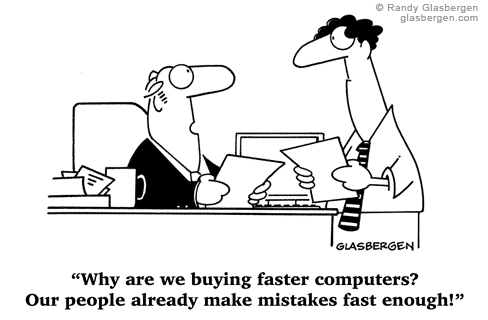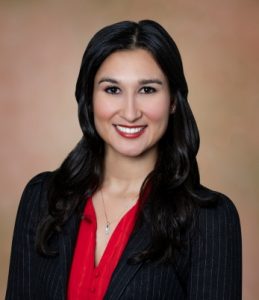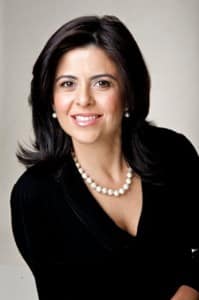Do you enjoy playing with words? If so, would you like to develop your writing skills and find your voice? Perhaps you could even become an editor and help Hispanic writers find their voice and develop their stories. Read the following interview with English and Spanish bilingual editor Erich Lagasse and learn how.
Please tell us about your childhood and where you grew up.
I was born and raised in Lima, Peru, by my Peruvian mother and American father, and I attended the bilingual American School in Lima. So I learned English and Spanish both at home and in school.
If you lived in another country, was the transition to the US difficult?
After graduating from high school, I moved to San Antonio, Texas, to study at St. Mary’s University. Although I was living in the dorms for the first couple of years, the transition was not too difficult. All my siblings had gone to college before me, so I knew it was something I had to do. And San Antonio is very Hispanic, so I was able to meet people from all of Latin America, even a few Peruvians. But my grades weren’t great the first couple of years; I was very immature.
Did you go to college, and if so, was being a Hispanic an advantage or a disadvantage?
Being a Hispanic in San Antonio makes you part of the majority rather than the minority, so the advantage was that I met a lot of people who had a similar background to mine.
What is your job title and what industry do you work in?
I am a freelance English and Spanish bilingual editor, and I work in the publishing—web publishing included—industry.
Can you please tell us about your career path—i.e., how did you get to your current position?
I majored in marketing, and my first internship while still in college required that I translate marketing literature from English to Spanish. After graduation, I continued to work as a translator, and a few years later, I began to write and edit content for different websites. Eventually, I found a job in which I managed website translations for clients like Best Buy, Victoria’s Secret, WebMD, and Delta Airlines.
A couple of years later, I became the content manager for LatPro and learned to optimize and manage content in WordPress. Concurrently, I obtained an MFA in Creative Writing from National University, then the professional sequence in editing certificate (in English) from UC Berkeley, and finally a diploma in editing of style (in Spanish) from Penguin Random House. I began working as a freelance editor in April.
Please describe the things you do on a typical day.
I work from home, so I overlap different tasks during the day. Yet, I try to do most of the work in the mornings. Around eight-thirty, I begin to work on whatever I have scheduled until lunchtime, then I have lunch, and then continue to work a few more hours in the afternoon. I usually work about six hours in total—writing and editing are very tiresome on the eyes and mind.
What did you learn the hard way in your career and how did that happen?
After my father passed, I stopped trusting people—other than my mother—because everyone seemed to have an agenda, and in turn, I naively hoped that my father’s spirit would take care of me. A short time after, I understood the importance of having factual information to make good decisions. But I erroneously concluded that as long as I knew what was going on, my father would be there to guide me when things got tough and the people who wronged me would eventually be punished. Soon I began to shield myself with this belief and, needless to say, made some bad decisions, including in my career. I learned—the hard way—to be more prudent and skeptical. Now I try not to fall into cynicism, but I must admit I sometimes do.
What don’t they teach in school that would’ve been helpful to you?
Although school does teach vocabulary and grammar, I think it should focus more on these subjects. I realize this would take away time from other topics, but I think children must learn how to read, write, and speak well in school. And teachers do try to help, but kids in middle school and high school have to deal with too many issues. When I was in school, for example, I was afraid of making a fool of myself by speaking out. I even tried to avoid people so I wouldn’t have to talk to them. This got me into trouble because I didn’t learn how to express myself freely: sometimes I thought people understood what I meant yet they had misinterpreted me. So learning how to articulate words well without the fear of being ridiculed would’ve been extremely helpful to me.
On a good day when things are going well, can you give an example of something that really makes you feel good?
Working with authors can be complicated, but editing is something I truly enjoy. Making sentences clear and comprehensible is like working on a puzzle; once you are finished it is very satisfying.
When nothing seems to go right, what kind of snafus do you handle and what do you dislike the most?
Developing a client base can be difficult and also take time. What I dislike the most about editing is when authors don’t accept the corrections I suggest and so the text remains messy and confusing; this is very frustrating.
How stressful is your job?
Although dealing with authors and not finding work can be stressful, I remind myself that I’m doing what I enjoy the most, unlike many people who have to do hard physical work. This not only keeps me grounded and thankful for my career but also reduces the stress I feel.
Are you able to maintain a comfortable or healthy work-life balance?
Absolutely. I get to eat home-cooked meals and, at about six in the afternoon, exercise for about an hour every day.

What’s the most rewarding moment you’ve experienced in your career?
If my studies can be included as part of my career, I’d say that writing the thesis for my MFA in Creative Writing was the most rewarding experience. Writing a historical fiction book about the Incas was an intellectual exploration wherein I learned many things about history, language, and myself. More specifically, experimenting with words and arguments made me understand the importance of grammar.
What’s the most challenging moment you’ve experienced?
After graduating from college, I returned to Peru to look for a job. I worked as an intern writer and freelance translator, but both jobs didn’t pay well. A couple of years later, I decided to return to the United States to become a writer. It was a tough decision because I had to leave my family and friends behind. Yet I moved to Miami, Florida, believing I could make it. I worked for a year answering telephone calls as a customer service representative and began to regret my decision. But I was fortunate enough to enroll in a few writing classes and, a year later, found my first writing internship in the USA.
What education and skills do you need to get hired and succeed in this field?
A solid grasp of English and Spanish grammars is essential to become a bilingual editor. I think the best way to learn them is to major in linguistics and minor in literature. To those who are native English speakers, I’d suggest to major in Spanish linguistics and minor in English, and native Spanish speakers should major in linguistics and minor in Spanish.
But the different types of editing require different skills. A developmental editor fixes the structural errors of manuscripts. They must be strong readers—an M.A. or Ph.D. in literature would be extremely helpful—who focus on how stories work and fix the gaps, inconsistencies, and contradictions that make the story confusing. A developmental editor also suggests different alternatives as to how the narrative arc and plot should be developed, e.g., a book about American history that focuses too much on colonial America, nothing on the Early Republic, and too little on contemporary America could be reworked to better distribute and discuss the different periods of American history.
A line editor works at the sentence and paragraph level to make the text concise, fluid, and, hopefully, beautiful. This type of editing isn’t done as often as it used to be, but authors who want to improve the writing of their stories rather than just correct it should consider a line edit. Basically, a line editor must have the knowledge of a creative writing teacher to work closely with writers and help them improve writing quality.
Copyeditors focus on grammar and usage. Their objective is to make sentences more comprehensible. So after a developmental editor is done with a manuscript, the copyeditor fixes all grammatical errors and smaller flaws in logic. There are different levels of copyediting, and the copyeditor determines what level is needed depending on how well the text is written. A copyeditor must be an excellent grammarian.
Finally, proofreaders focus on spelling and punctuation (copyeditors correct the punctuation errors that make the text difficult to read). In other words, proofreaders look for typos and other minor errors in texts. Proofreaders should have an eye for detail and be good at spelling.
On a final note, I’d suggest those who are interested in becoming editors to learn all they can about coding and SEO because all websites require editors, and I think new technologies will create new career opportunities.
What would you tell a friend considering your line of work?
To write in their spare time, study a lot of grammar—preferably obtain a certificate in editing—and read different types of texts in English and Spanish. I’d suggest for them to pursue an MFA or some other writing-intensive master’s degree, and if they don’t have a bachelor’s, to study linguistics.
Do you feel like you found your calling or sweet spot in life? If not, what might do it for you?
Yes. I feel confident that I have the knowledge and skills to help Hispanic writers not only find their voice but also develop their stories in Spanish or English. Moreover, I learn about different subjects when editing manuscripts in either language, and this is very rewarding.
If you want to improve your English or Spanish writing skills, check out the Bilingual Guide for bilinguals I am developing.






 On a good day when things are going well, can you give an example of something that really makes you feel good?
On a good day when things are going well, can you give an example of something that really makes you feel good?

 Please describe the things you do on a typical day.
Please describe the things you do on a typical day.


 I was born in Lima, Peru. My father was the regional director for a multinational company, and my mother was a kindergarten teacher. Because we moved to different cities every two years, I grew up in Canada, Mexico, Peru, and the United States.
I was born in Lima, Peru. My father was the regional director for a multinational company, and my mother was a kindergarten teacher. Because we moved to different cities every two years, I grew up in Canada, Mexico, Peru, and the United States. Please describe the things you do on a typical day.
Please describe the things you do on a typical day.
 Have you gone back, or considered going to your native country, or that of your forefathers, to give back to the community?
Have you gone back, or considered going to your native country, or that of your forefathers, to give back to the community?